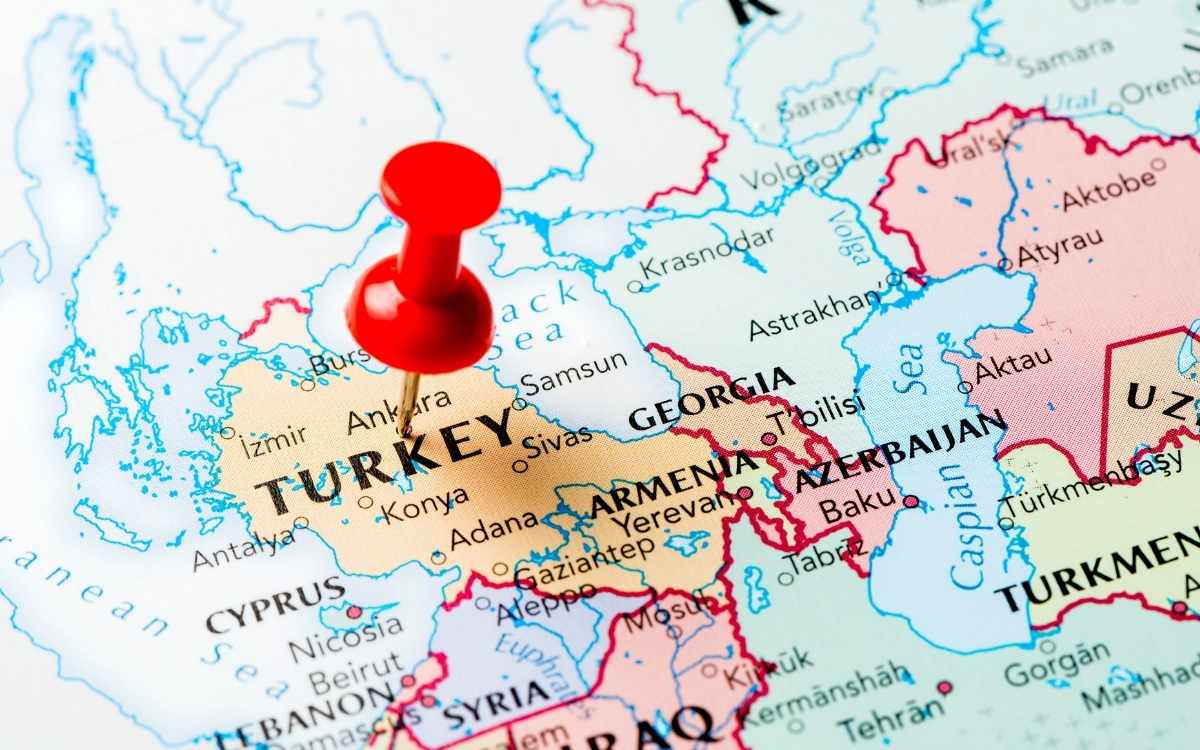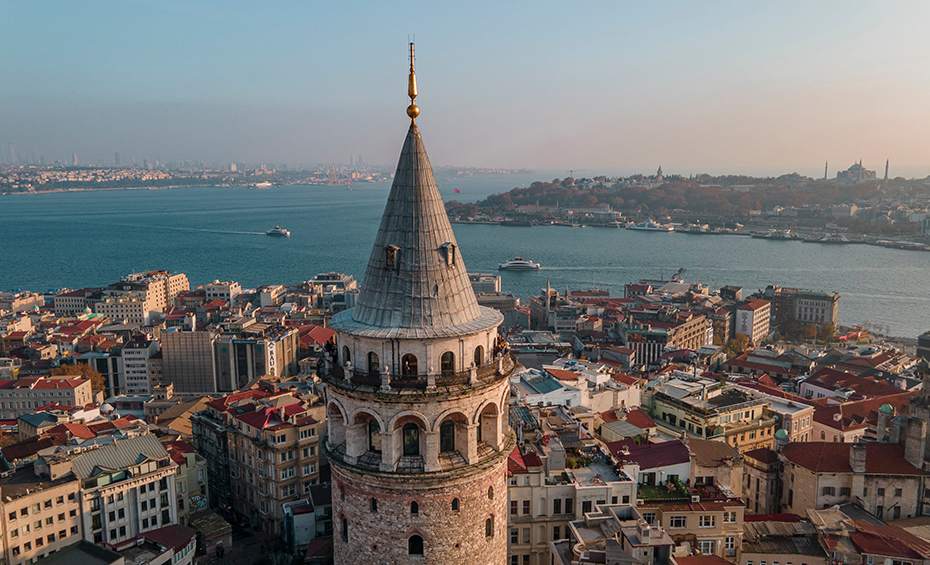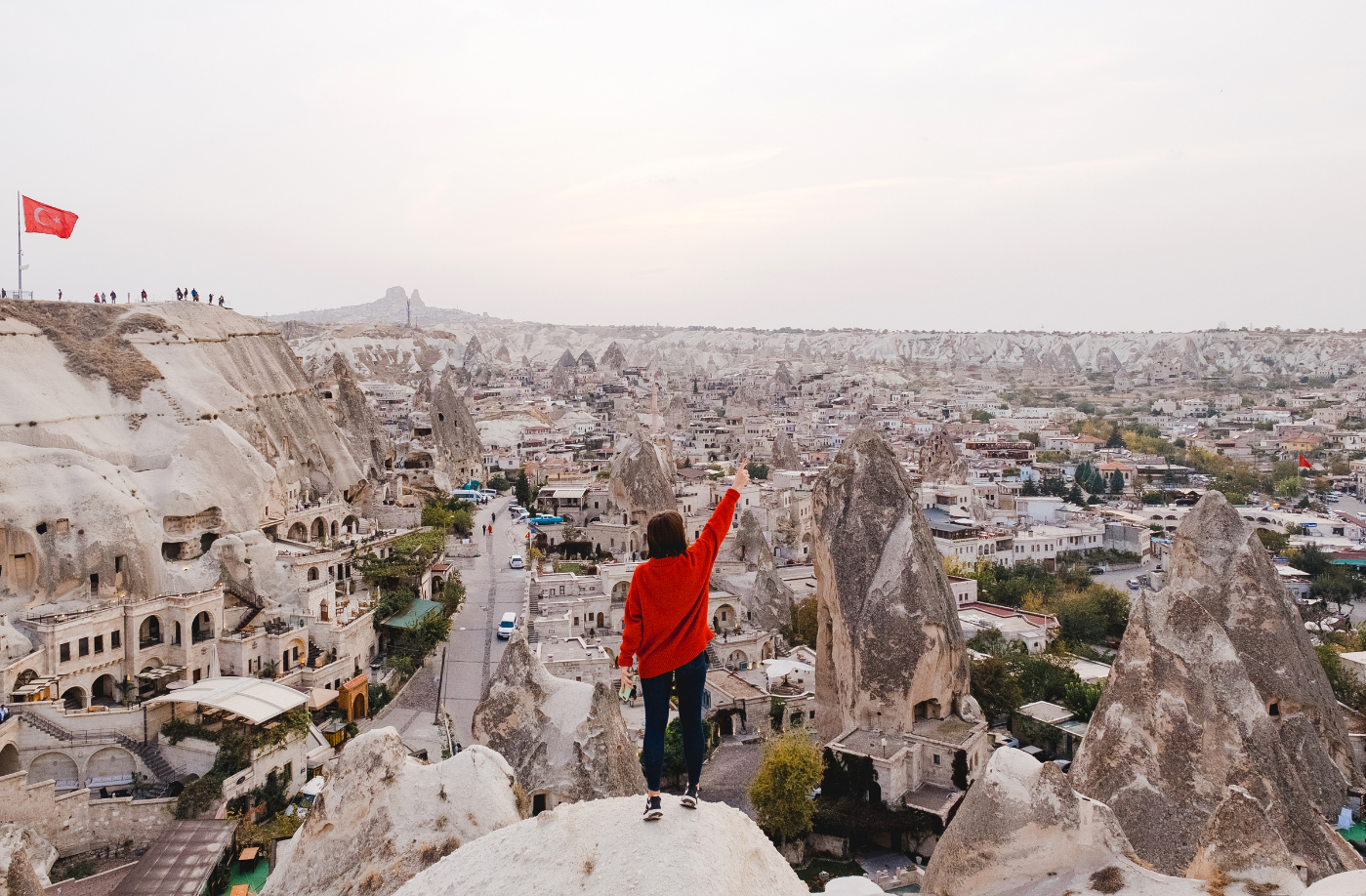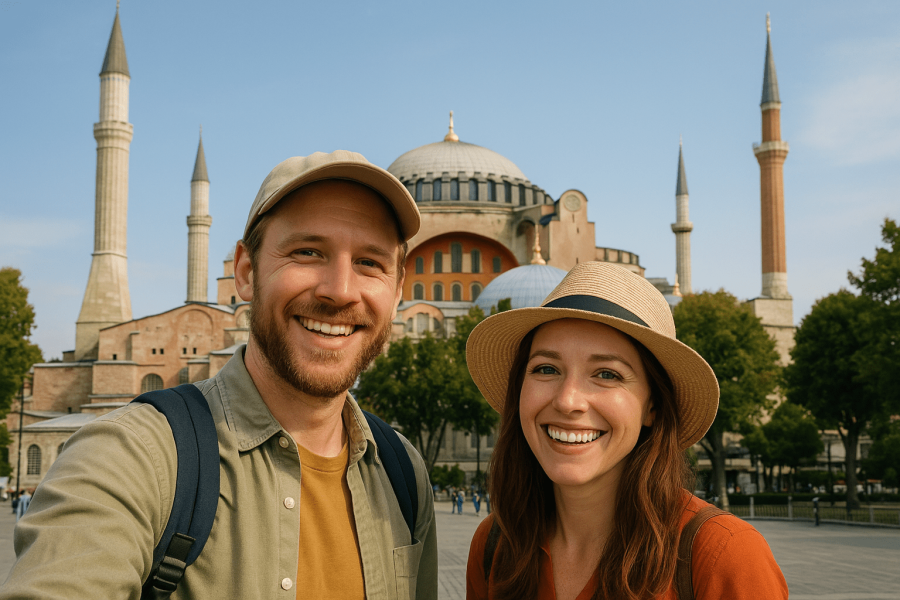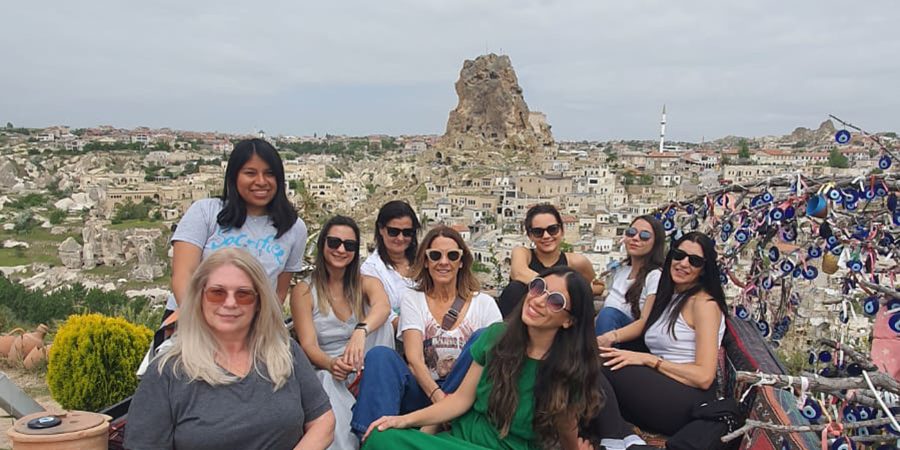If you’re planning a Turkey vacation and want one clear, honest Turkey travel guide that reads like a friend showing you around—welcome!
Below you’ll find the 2025 essentials—visas, money, transport, etiquette, safety—explained in plain English with practical Turkey travel tips woven throughout. By the end, you’ll know exactly how to move, what things cost, and how to make the most of your days.
Quick Start: Turkey at a Glance (cheat sheet graphic)
Here’s the fast picture, without the fluff. Turkey is big, varied, and wonderfully easy to travel once you understand its rhythm. Spring and fall (April–June, September–October) feel tailor-made for first-timers—mild temperatures, manageable crowds, and great value.
Summer belongs to the coasts; winter belongs to cities and snow-dusted Cappadocia. ATMs are everywhere, eSIMs are simple, domestic flights are cheap and frequent, and the Istanbul public-transport card makes the city feel small.
If you only remember one thing from this Turkey tourism guide, remember this: align your plan to the season, and everything else clicks into place. For month-by-month nuance, open our Best Time to Visit Turkey 2025 guide when you’re ready.
Entry Requirements
Visa rules for US/UK/EU
Most Americans use the official e-Visa system; it’s quick, inexpensive, and you’ll receive a PDF you can save to your phone. Many UK and EU travelers are visa-exempt for short stays, while others also use the e-Visa.
Whatever your passport, check the official portal before you buy flights so your dates and details line up. Avoid third-party “visa services” that add fees—you don’t need them.
This Turkey travel guide can’t replace official sources, but it will keep you from common pitfalls: apply with the exact name and passport number on your ticket, and carry the digital and printed copy for peace of mind.
Passport validity, customs
Arrive with a passport valid for at least six months beyond your entry date and a blank page for the stamp. Personal medications are fine in original packaging, and normal camera gear flies through customs.
If you’re bringing a drone or valuable equipment, read the latest rules before departure; permits may apply. Those tiny admin moments set the tone for your trip—handle them once, and you can focus on why you came.
Money & Costs
TL basics, ATMs, tipping
The Turkish Lira (TRY) is your day-to-day currency. ATMs are common and usually deliver the best exchange rate; when a machine offers to charge you in dollars, decline and choose to be charged in lira so your bank handles the conversion.
Cards work well in cities and hotels, but some taxis and small cafés prefer cash. Tipping is straightforward: round up in casual places and add about 10% in sit-down restaurants if service isn’t already included. For guides and drivers, tip what feels right for the day and the service—small gestures are genuinely appreciated.
Daily budget ranges
If you’re counting dollars, Turkey still stretches them. Backpackers sleep well and eat brilliantly on roughly $45–$75 per day with bus travel and street eats. Most of our guests travel in the $90–$180 range, mixing boutique hotels, a domestic flight or two, and a guided day tour.
Upscale travelers—cave suites, private guiding, gulet cruising—should think $200–$400+ daily. The only line item that surprises people is Cappadocia ballooning; it’s a premium experience with premium pricing, so reserve early and treat it like a once-in-a-lifetime sunrise rather than just another tour.
Getting Around
Domestic flights, buses, trains, car rental
Domestic flights are the secret weapon of any Turkey vacation guide: they’re frequent, inexpensive, and turn a long bus ride into a one-hour hop. Istanbul pairs easily with Cappadocia (Kayseri or Nevşehir airports), Izmir for Ephesus, Antalya for the Med coast, or Ankara for museum lovers.
Intercity buses remain a pleasure—modern coaches, assigned seats, and schedules that knit the country together at all hours. High-speed trains (YHT) link Istanbul with Ankara, İstanbul, Eskişehir, and Konya; if you like a book and a window seat, you’ll be happy.
Car rental earns its keep along the Aegean and Mediterranean where bays and ruins ask you to stop on a whim; drive defensively in cities and lean on hotel concierges for parking tips.
City transport (Istanbul card, taxis)
In Istanbul, the Istanbulkart turns the whole network—trams, metro, ferries, buses—into one simple tap. It’s cheap, reliable, and often faster than cars.
Taxis are plentiful; ask the driver to run the meter and hop out if you feel pushed to accept a “fixed price.” On the Bosporus, ferries double as sightseeing for the cost of a coffee, so build them into your day rather than treating them as transport you “have” to take.
Where to Stay
Hotel types (boutique, cave hotels), booking tips
Turkey specializes in memorable stays. In Istanbul and along the Aegean, boutique hotels tuck into side streets with rooftop terraces made for golden hour. In Cappadocia, caves move from curiosity to comfort—vaulted stone rooms, carved arches, and breakfast with balloons floating overhead.
On the coast, you can choose between contemporary resorts and wooden gulet boats that drift from cove to cove. Book early for April–June and September–October, especially for cave hotels and gulets, and double-check the basics that matter to you: air-conditioning in July, heating in January, and breakfast hours that match your balloon pickup time.
Culture & Etiquette
Dress code, mosque etiquette
If you dress as you would for Rome or Barcelona, you’ll be at ease almost everywhere. For mosques, cover shoulders and knees; women may choose to cover hair with a light scarf.
You’ll remove shoes at the door and move quietly through prayer halls—no flash, no posing that interrupts worship. The vibe is welcoming, not policed; respect earns smiles and sometimes stories.
Dining & tipping culture
Meals are an occasion. In Istanbul you can wander from meze to seafood; inland you’ll meet clay-pot “testi” kebab and village breads still warm from the oven.
Coffee comes strong, tea comes often, and dessert is not optional if baklava is on the table. Service charges aren’t a given, so add roughly 10% when the experience warrants it and call it a thank-you rather than a rule.
Health & Safety Essentials
Turkey is one of those places where common sense goes a long way. Bottled water is standard for travelers, and busy street-food stalls are usually the tastiest and safest because turnover is high. Pharmacies—“eczane”—are friendly and helpful for the inevitable sore throat or sunscreen emergency.
In summer, the coastal sun is serious; hats and hydration make the difference between a perfect day and a slow one. Cities are lively and generally safe; keep wallets zipped in crowds and treat transport hubs as you would in New York or Rome. If you plan to balloon, sail, ski, or paraglide, travel insurance is a smart add.
Connectivity & SIM Cards
Staying connected is easy. eSIMs work for most newer phones; otherwise local SIMs from Turkcell, Vodafone, or Türk Telekom are quick to buy with your passport at official shops.
Coverage is strong across cities and surprisingly good in rural areas. Hotel and café Wi-Fi fills the gaps. If you’re working remotely, tell us your bandwidth needs and we’ll steer you to hotels and neighborhoods that play nice with Zoom.
Must-See Highlights (Top 10)
You won’t do everything on your first trip, and that’s part of the charm—you’ll leave wanting more. Most travelers begin with Istanbul’s Old City, where Hagia Sophia’s dome still quiets rooms, then chase sunrise over Cappadocia’s valleys before walking the marble streets of Ephesus.
Pamukkale’s terraces glow at golden hour; Antalya’s Kaleiçi mixes beaches with history; Bodrum turns harbors into evening plans.
Fethiye and Ölüdeniz add turquoise days and paragliding views; Gallipoli and Troy ground the Aegean in memory and myth.
Konya’s whirling dervish heritage pairs well with a high-speed train ride, and Eastern Turkey—Van Lake, the ruins of Ani, the Kaçkar—rewards the return visitor with open roads and big skies.
If you like to organize around seasons, match this section with our Best Time to Visit Turkey 2025 post or ask us to map a “Golden Triangle” of Istanbul, Cappadocia, and Ephesus/Pamukkale in 7–10 days.
Sample Budgets & Packing List
Let’s connect costs and comfort so there are no surprises. A frugal solo traveler can live well on $55 per day by choosing pensions, buses, and markets.
The sweet spot for couples tends to be that $130-ish per person range, where boutique hotels and a guided day or two make everything smoother.
If you love spacious rooms, private drivers, and front-row balloon baskets, plan for $260+ per person per day and enjoy the ease. Packing is seasonal: in spring and fall, layers and a light rain shell cover almost every scenario; in summer, breathable fabrics, a hat, and a modest cover-up for mosques keep you comfortable from trams to terraces; in winter, a warm coat and waterproof shoes make Istanbul cozy and Cappadocia magical.
Add hiking shoes for valleys, swim gear for the Med and Aegean, and a soft duffel if you’re boarding a gulet—hard suitcases and boat cabins don’t get along.
FAQ
Do I need a visa for Turkey?
Many nationalities either enter visa-free for short stays or use the official e-Visa system, which takes minutes online. Check the current rules for your passport before booking flights and keep a copy of the approval on your phone.
What’s the best month to visit?
For most travelers, May and September are the sweet spot—long days, comfortable temperatures, and fewer crowds. If beaches are your priority, late June through early September delivers the warmest seas.
How many days do I need?
Seven to ten days fits the classic loop of Istanbul, Cappadocia, and either Ephesus/Pamukkale or the Mediterranean coast. With two weeks, add a gulet cruise or push east for wide-open landscapes.
Is Turkey safe for tourists?
Yes. Use the same city smarts you’d use anywhere: watch bags in crowds, use licensed taxis, and follow local advice during busy holidays. If you’re doing adventure activities, make room in the budget for insurance.
What about money—cash or card?
Carry a little of both. ATMs are plentiful and give fair rates if you choose to pay in lira; cards work widely in cities, but small shops and taxis may prefer cash. Tipping is appreciated rather than mandatory.
Customize your Turkey trip with our expert planners. Tell us your month, your must-sees, and your pace. We’ll design an itinerary that matches the season—airport pickups, domestic flights, balloon slots, blue-cruise cabins, the works—so you can land ready to enjoy. If you’d like next steps, start with Best Time to Visit Turkey 2025 for your dates, then ask us to tailor the Golden Triangle (or something totally your own).

